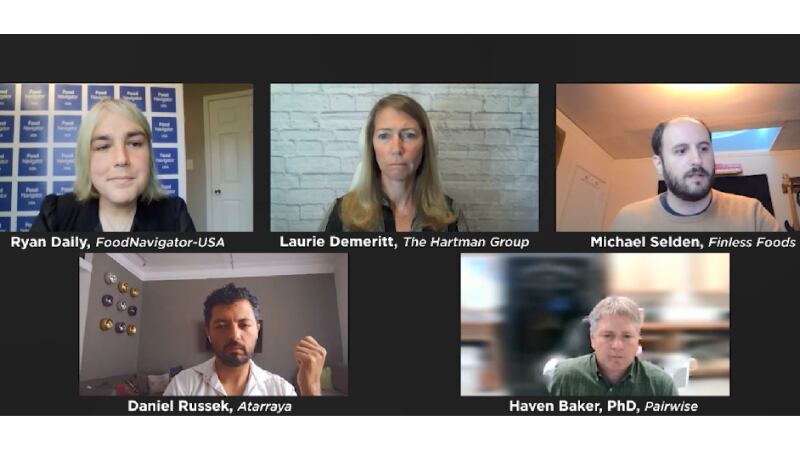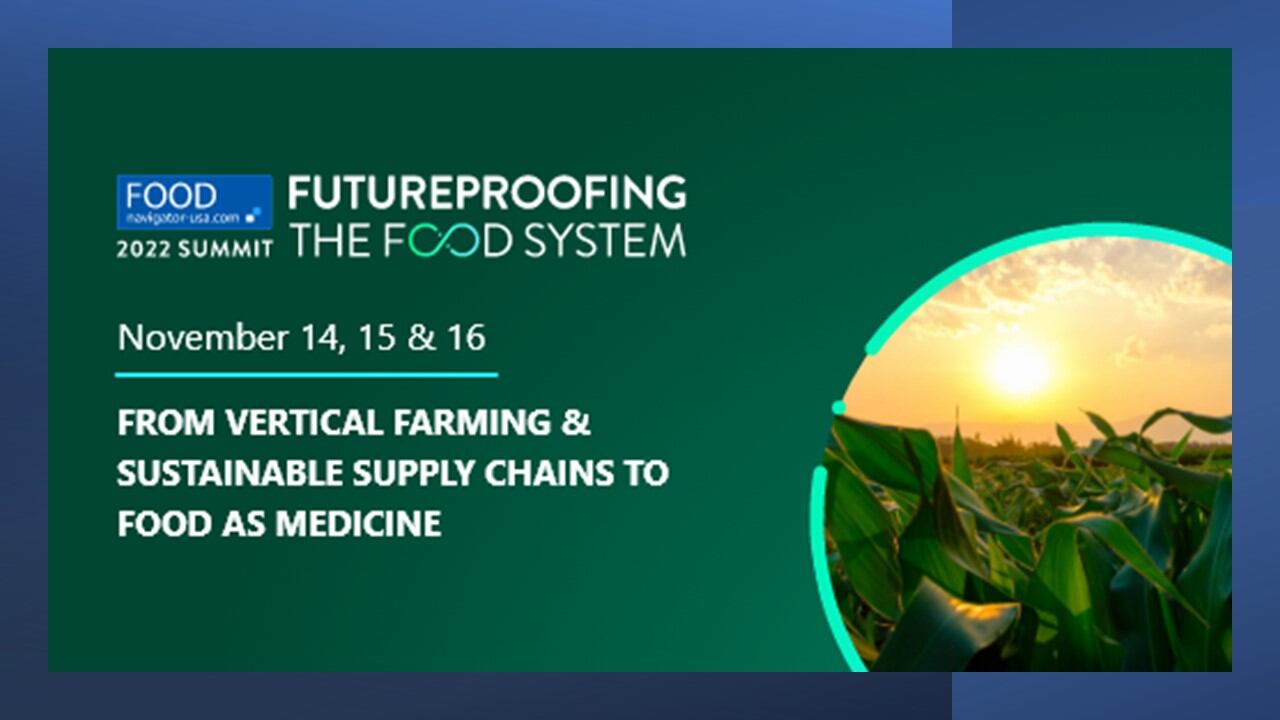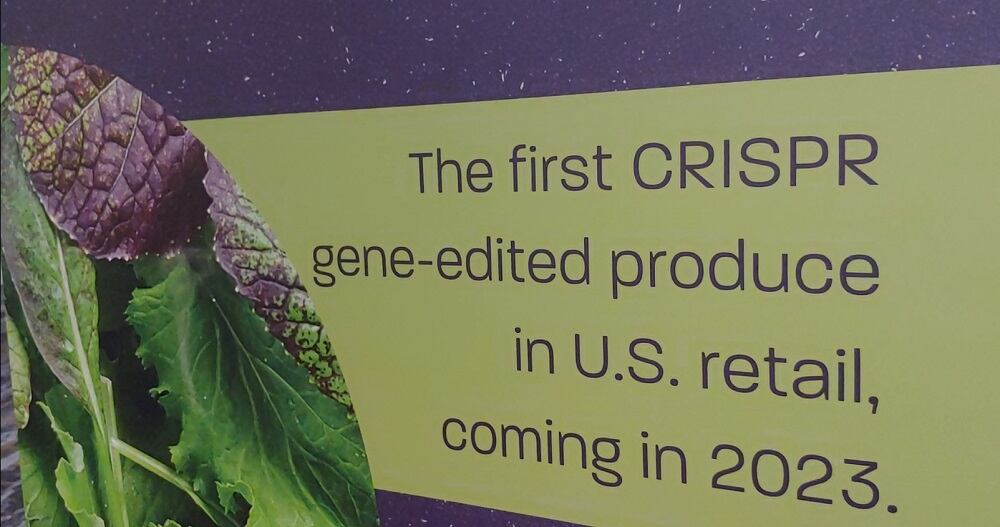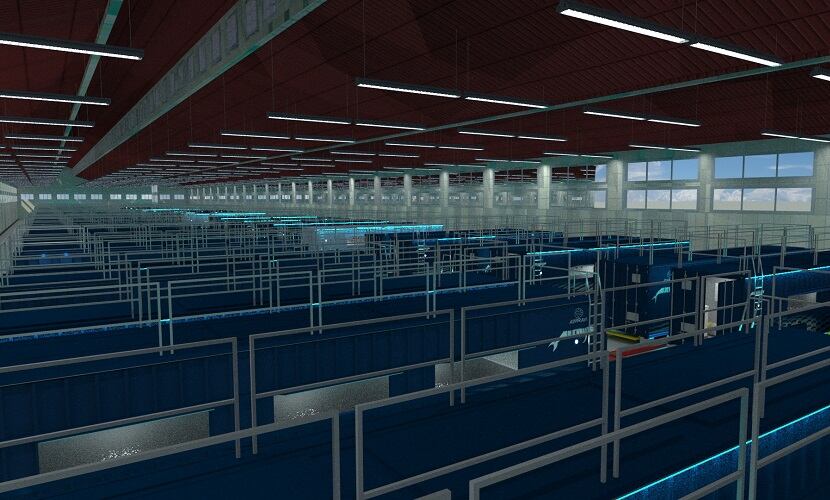Consumers are open to food tech, as long as options exist
Historically, consumers have been skeptical of GMO ingredients, heavily processed or manipulated foods, and food tech in general. However, consumers may have turned a corner on food tech and see it as a solution to the challenges facing the food system, Laurie Demeritt, CEO of The Hartman Group, shared during the panel session 'What is the consumer appetite for food-tech?' (watch on-demand here).
“We found this year ... that this idea around foods still being fresh and real was important, but there was a greater embrace of food that had been created or made in different ways. Now, the reason for this tension mitigating is that consumers today see just this cascade of challenges in the food system," she said.
In a survey of 2,500 US consumers, The Hartman Group found that 64% of consumers said scientific and tech innovations can make food more sustainable, and 63% also see science and technology as a tool to help address climate change.
Additionally, 60% of consumers say science and tech can make food healthier, and 55% said modern industrial systems for farming and raising animals are the best way to feed a growing popular, up eight points and 10 points from 2019 numbers, respectively.
“Climate change, in particular, is one of those issues that consumers today feel like they just have no control over. It's very intangible. It's very complicated. They're not really sure what to do about it. So, they're looking to companies in the wider industry to solve for things like climate change.”
Though perceptions of food tech might be changing among consumers, food tech and CPG companies need to consider a couple of caveats, including ensuring that they still meet the demand for natural products and being transparent on how their food is created.
"We need to be very careful, as we articulate how these foods were made processed, how they were grown, that there isn't this sense that it's just the set of concerns set of producers that have very esoteric knowledge that consumers will never have access to," Demeritte said.
What’s needed to tell a better food-tech story?
In the second part of the presentation, a panel of food tech founders shared their thoughts on what’s needed to communicate the benefits of food tech to consumers better.
Aquaculture startup Atarraya has a facility in Indianapolis, where it grows shrimp indoors with its Shrimpbox technology, company CEO and founder Daniel Russek said. In communicating the benefits of food tech, Russek noted that Atarraya is "not creating a new product" but using technological advancements to help address challenges in the seafood market and provide consumers with more natural products, he added.
“Nobody wants their food to taste like tech,” Russek said. “We can use the tools of tech to produce better foods, [but] at the same time, we have now a food system that the consumers are very wary about…. We are very conscious about the impact that the food has on our planet, and it has in our bodies, so then we are reprioritizing the things that we care about in terms of food. I think that the question is what can we do in order to basically to match these priorities.”
Similarly, cell-cultivated seafood company Finless Foods is trying to create more sustainable seafood and focusing on addressing consumer issues in the process, shared Michael Selden company co-founder & CEO. Finless Foods has focused on creating more sustainable tuna, “which has not had success in terms of economically scaling in farm settings,” and working with chefs to learn what is important for them.
“We really have a big focus on chefs in particular at Finless to make sure that we are solving their needs because we're already very focused on the environmental need and making sure that consumers are aware that we have mercury-free, plastic-free, [and] more affordable fish that's fresher than what they had before. But it's how do you get the whole supply chain in the middle bought in on what you're trying to do and that's a big focus for us.”
When it comes to telling a better food tech story, it’s also important that brands are transparent with their products and educate consumers on why food technology was used in the creation of the food or beverage, Haven Baker, co-founder and chief business officer at Pairwise explained.
“Our first product that we launched this year at Conscious Greens are ... a new variety of leafy greens that have the texture of lettuce and the tastes similar to lettuce, but the nutrition of kale, so we're bringing that nutrition without compromise, and we talked about nutrition on the front of the package. We think transparency is important. So, on the back of our package, it talks about using CRISPR technology. We've got the information on our website, but we want to clearly go at that benefit, which for our first product is better nutrition and better flavor.”
Register for the event to watch this session and other FoodNavigator-USA Futureproofing the Food System sessions on-demand. The recording of this presentation will be available for three months following the initial live date.






